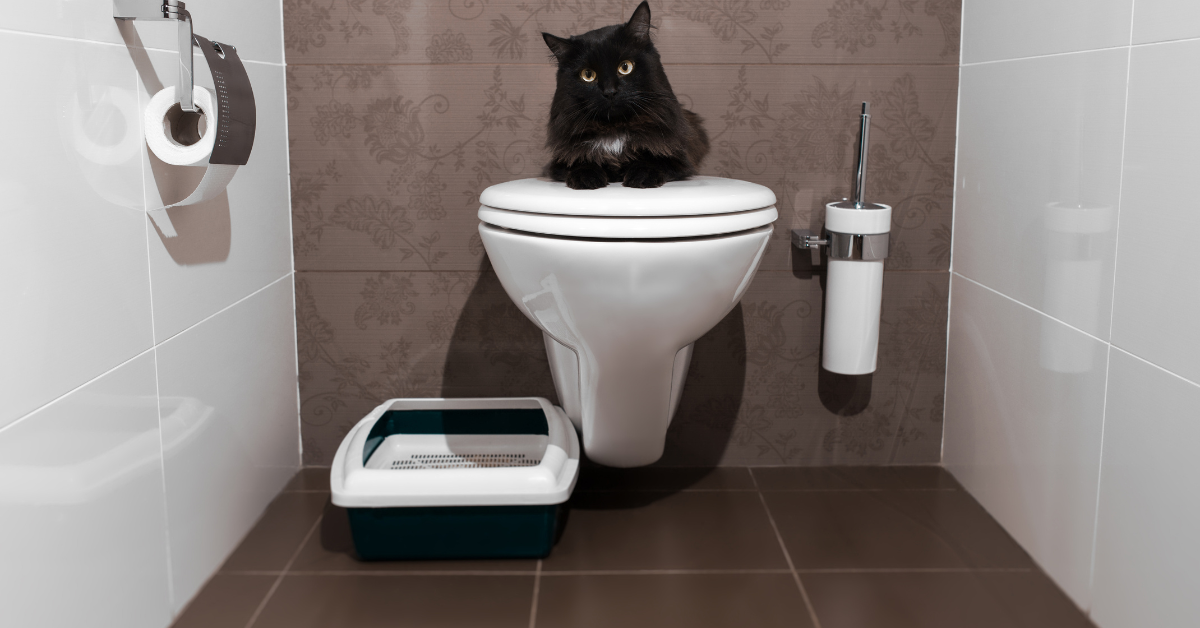Dangers of Flushing Cat Poop in Your Toilet - Precautionary Measures
Dangers of Flushing Cat Poop in Your Toilet - Precautionary Measures
Blog Article
What are your beliefs on How to Dispose of Cat Poop and Litter Without Plastic Bags?

Introduction
As pet cat owners, it's vital to be mindful of just how we throw away our feline buddies' waste. While it might seem hassle-free to flush feline poop down the toilet, this method can have destructive repercussions for both the setting and human health.
Ecological Impact
Flushing feline poop presents damaging virus and parasites right into the water, positioning a substantial risk to water ecosystems. These pollutants can adversely impact marine life and concession water top quality.
Health Risks
In addition to ecological problems, flushing feline waste can additionally pose health and wellness threats to people. Pet cat feces might include Toxoplasma gondii, a bloodsucker that can trigger toxoplasmosis-- a potentially severe disease, particularly for expectant ladies and people with damaged body immune systems.
Alternatives to Flushing
Thankfully, there are more secure and more accountable methods to dispose of feline poop. Consider the following choices:
1. Scoop and Dispose in Trash
One of the most typical approach of throwing away pet cat poop is to scoop it into an eco-friendly bag and toss it in the trash. Make certain to make use of a specialized trash inside story and dispose of the waste immediately.
2. Usage Biodegradable Litter
Opt for eco-friendly pet cat trash made from materials such as corn or wheat. These trashes are environmentally friendly and can be securely gotten rid of in the trash.
3. Bury in the Yard
If you have a backyard, think about hiding pet cat waste in a designated area far from veggie yards and water sources. Make certain to dig deep sufficient to prevent contamination of groundwater.
4. Mount a Pet Waste Disposal System
Invest in an animal garbage disposal system particularly made for feline waste. These systems use enzymes to break down the waste, reducing odor and ecological impact.
Verdict
Accountable family pet ownership expands beyond offering food and shelter-- it likewise involves correct waste monitoring. By refraining from purging pet cat poop down the commode and going with different disposal techniques, we can minimize our ecological impact and shield human health and wellness.
Why You Should Never Flush Cat Poop Down the Toilet
A rose by any other name might smell as sweet, but not all poop is created equal. Toilets, and our sewage systems, are designed for human excrement, not animal waste. It might seem like it couldn’t hurt to toss cat feces into the loo, but it’s not a good idea to flush cat poop in the toilet.
First and foremost, assuming your cat uses a litter box, any waste is going to have litter on it. And even the smallest amount of litter can wreak havoc on plumbing.
Over time, small amounts build up, filling up your septic system. Most litter sold today is clumping; it is made from a type of clay that hardens when it gets wet. Ever tried to scrape old clumps from the bottom of a litter box? You know just how cement-hard it can get!
Now imagine just a small clump of that stuck in your pipes. A simple de-clogger like Drano isn’t going to cut it. And that means it’s going to cost you big time to fix it.
Parasitic Contamination
Believe it or not, your healthy kitty may be harboring a nasty parasite. Only cats excrete Toxoplasma in their feces. Yet it rarely causes serious health issues in the cats that are infected. Most people will be fine too if infected. Only pregnant women and people with compromised immune systems are at risk. (If you’ve ever heard how women who are expecting are excused from litter cleaning duty, Toxoplasma is why.)
But other animals may have a problem if infected with the parasite. And human water treatment systems aren’t designed to handle it. As a result, the systems don’t remove the parasite before discharging wastewater into local waterways. Fish, shellfish, and other marine life — otters in particular — are susceptible to toxoplasma. If exposed, most will end up with brain damage and many will die.
Depending on the species of fish, they may end up on someone’s fish hook and, ultimately on someone’s dinner plate. If that someone has a chronic illness, they’re at risk.
Skip the Toilet Training
We know there are folks out there who like to toilet train their cats. And we give them props, it takes a lot of work. But thanks to the toxoplasma, it’s not a good idea.

Do you appreciate more info about How to Dispose of Cat Poop and Litter Without Plastic Bags? Leave a remark down below. We'd be delighted to find out your thoughts about this blog. We hope to see you back again soon. Appreciated our blog posting? Please share it. Help someone else discover it. Many thanks for taking the time to read it.
Get A Free Quote Report this page